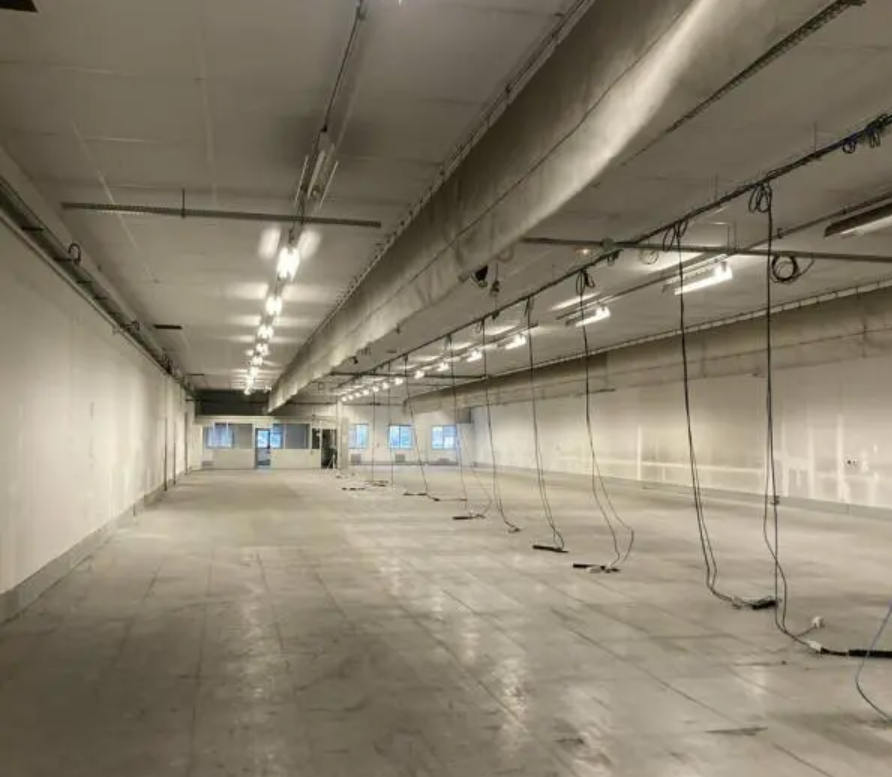1. Definition of space
1.1 What is a warehouse?
A warehouse is a storage area used to receive, store, manage and dispatch goods. It is generally designed to meet the logistical needs of a business, whether it is for the storage of finished goods, raw materials or equipment. Warehouses are often large, with wide aisles for forklift trucks and other handling equipment.
1.2 What are business premises?
An activity space, on the other hand, is a more versatile space designed to accommodate a variety of activities. It can be used for production, storage, offices or even sales. This type of unit is often best suited to businesses that need a workspace that combines both storage and office space. Business premises are generally smaller than warehouses, but offer a flexibility of use that may be essential for some businesses.
2. The main differences
2.1 Purpose and use
The main purpose of a warehouse is to store goods, whereas a business premises is intended for a variety of operations, including production, customer service and retail. It's important to clearly define your intended use before making any decisions.
2.2 Surface area and layout
Warehouses are generally larger, with high ceilings to allow overhead storage. They are often designed with racks and shelving adapted to pallet storage. Business premises, on the other hand, although less spacious, can be arranged more flexibly to integrate offices, meeting rooms and other functional spaces.
2.3 Location
Location plays a crucial role in the choice of premises. Warehouses are often located on the outskirts of urban areas, close to main roads and distribution centres, while business premises can be found in more central locations, offering better access to customers and business partners.
2.4 Warehouse costs
The cost of purchasing or renting a warehouse can be higher depending on its size and location. Commercial premises, although generally less expensive, may incur additional costs if specific facilities are required to meet your operational needs.
3. Analyse your business needs
To make the right choice, it's important to analyse your specific needs. Here are some questions to consider:
3.1 What is the nature of your business?
The nature of your business is a critical factor. If your business focuses on the distribution of physical products, a warehouse may be more appropriate. If, on the other hand, you provide services or products that require workspace, a commercial property may be more appropriate.
3.2 How big is your company?
The size of your business will also influence your choice. A small start-up may prefer premises to reduce costs and provide the flexibility to grow. Conversely, a more established business with significant storage needs may require a warehouse.
3.3 What are your long-term goals?
It's important to think about your long-term goals. If you're planning to expand rapidly, it may make sense to invest in a warehouse with sufficient capacity to accommodate future growth. If you plan to expand your services or diversify your products, a commercial property may be more appropriate.
4. Case study: Distribution vs. Service Company
4.1 Distribution company
Let's take the example of a food distribution company. For this company, a warehouse is essential to store large quantities of goods. It needs truck loading space, a refrigeration system and efficient stock management. Renting a warehouse on the outskirts of a town will provide easy access to main roads for deliveries.
4.2 Service companies
On the other hand, a service company, such as a marketing agency, doesn't need a lot of storage space. A commercial building would be more suitable, as it can integrate offices for teams, meeting rooms for clients and possibly a small storage area for equipment. The city centre location could also make it easier for customers and partners to access.
5. Practical considerations
5.1 Regulations
Before making your decision, it's important to check local regulations. Some areas may have restrictions on the type of activities that can be carried out in a building, which may affect your choice between a warehouse and a commercial building.
5.2 Layout requirements
Assess the facilities required for each space. A warehouse may require specific installations such as inventory management systems, while a commercial space may need to be fitted out to provide offices or meeting rooms.
5.3 Flexibility and evolution
Consider how flexible you want your space to be. If you're planning to evolve or change your business model, a commercial property may be easier to adapt than most warehouses.
6. Conclusion
Choosing between a warehouse and a commercial property is an important decision that depends on many factors, including the nature of your business, the size of your operation and your long-term objectives. By carefully analysing your needs and considering the differences between these two types of premises, you'll be able to make an informed choice that will support the growth and success of your business.
Ultimately, it is important to choose a space that not only meets your current needs, but also allows you to adapt as your business evolves. Don't hesitate to consult commercial property experts to help you maximise your chances of success.







